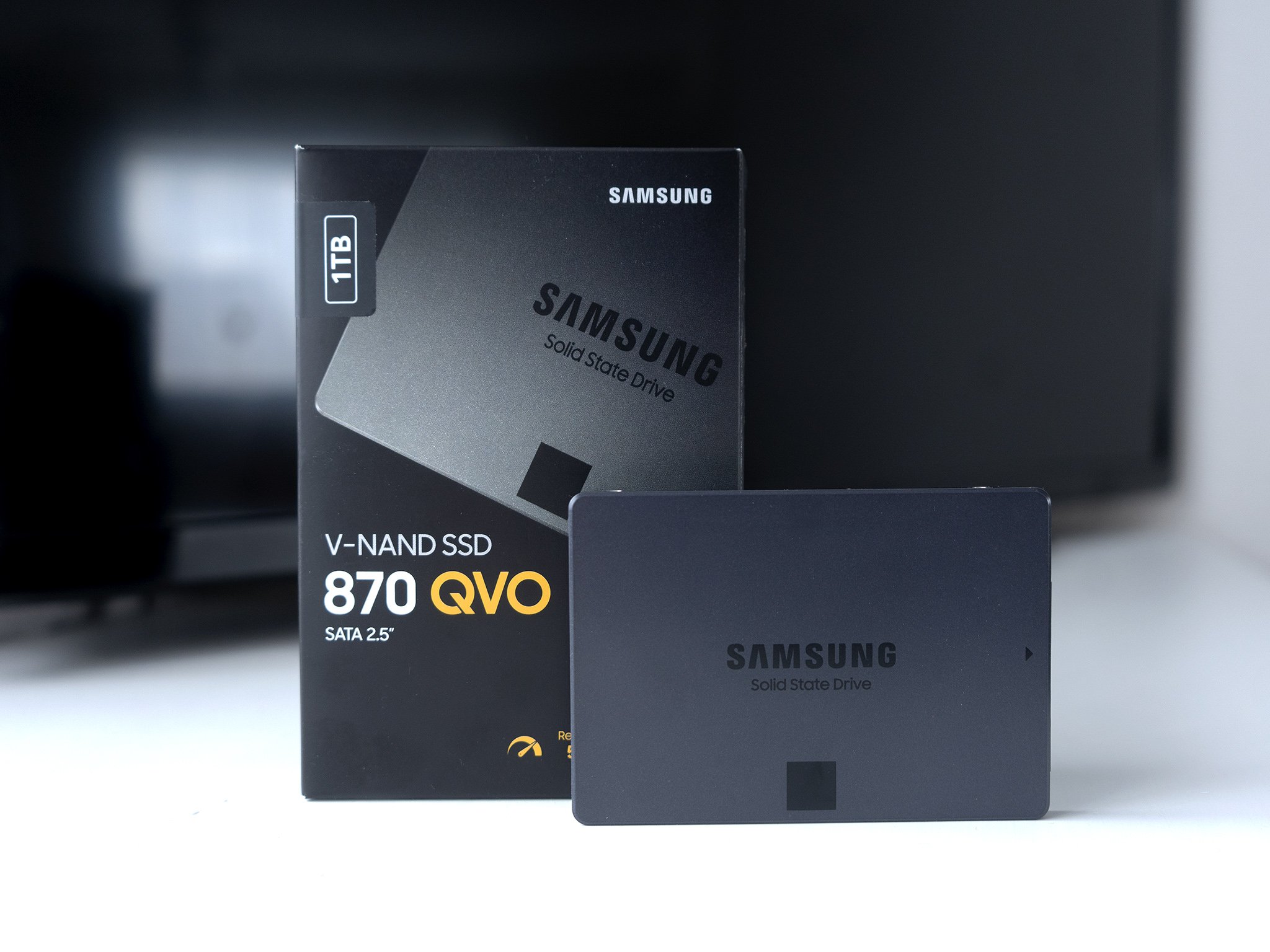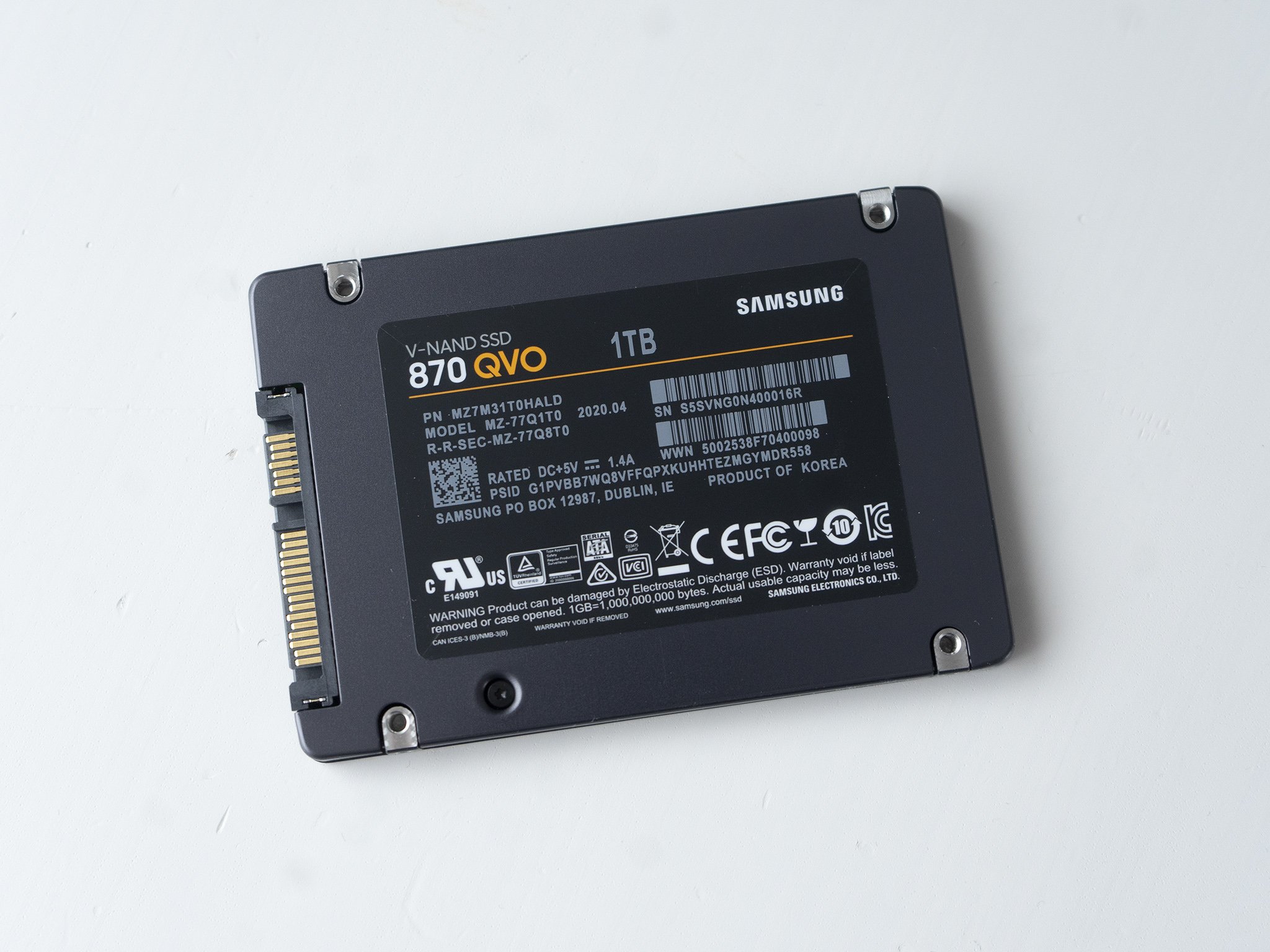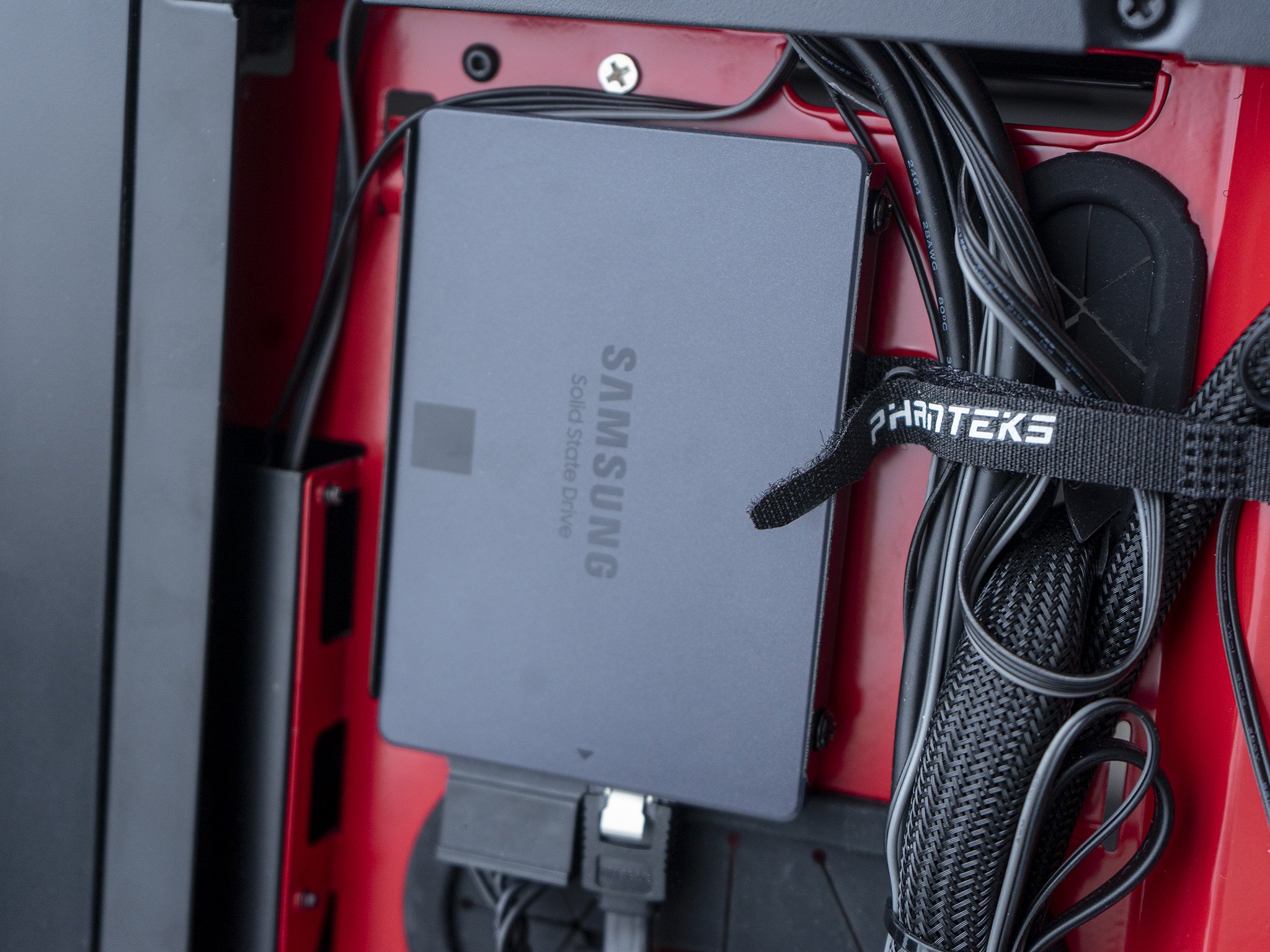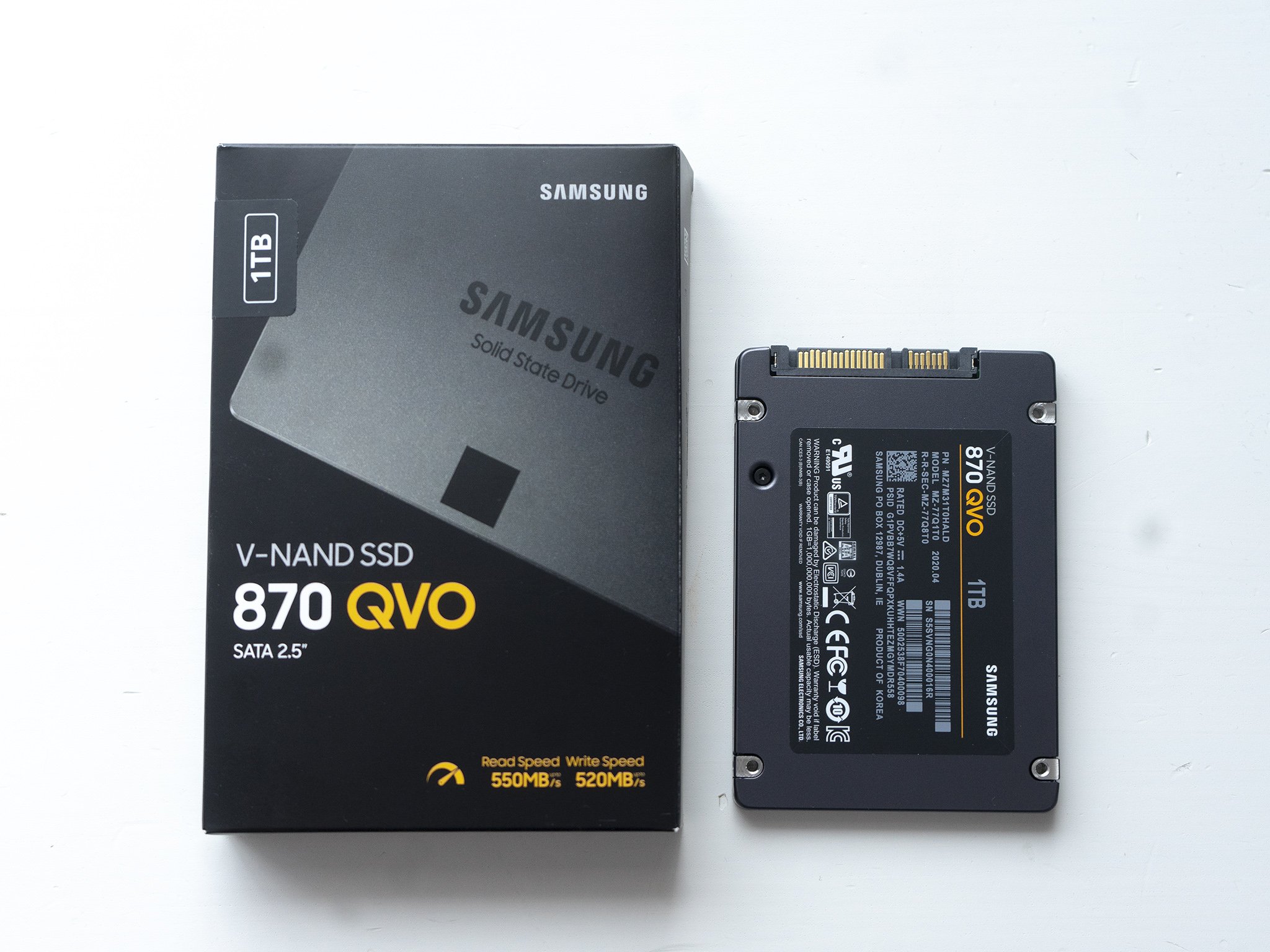Samsung's newest QLC SSD is here boasting impressive performance and massive capacity.
Samsung is back with its second-generation quad-level cell (QLC) SSD, with a view to providing high capacity SSDs that also combines good performance and an attractive price. And as it's a Samsung SSD we're already interested.
Samsung makes some of the very best consumer storage products on the market today, and the 870 QVO is no exception. It's not here chasing ultimate performance, instead, it's a more mundane SATA 3 offering. But its purpose is clear: To push the HDD ever closer to extinction.
The party piece of the 870 QVO is a whopping 8TB capacity, albeit that particular model won't be available until August. Before that, capacities between 1TB and 4TB will be available from June 30. And guess what? It's pretty good.
Goodbye HDD
Samsung 870 QVO
Bottom line: Proof that SSD mass storage is the future, and it's here today.
Pros:
- Good overall performance.
- Insane capacity up to 8TB.
- Three-year warranty.
- Excellent companion software.
- Attractive price.
Cons:
- 8TB option delayed until August
- 1TB model lacking compared to the rest
- Write speeds a little off manufacturer claims
Samsung 870 QVO specifications
| Category | Spec |
|---|---|
| Capacity | 1TB, 2TB, 4TB, 8TB |
| Interface | SATA 6Gb/s |
| Sequential read | Up to 560 MB/s |
| Sequential write | Up to 530 MB/s |
| Random read | Up to 98,000 IOPS |
| Random write | Up to 88,000 IOPS |
| NAND | Samsung V-NAND 4-bit MLC (QLC) |
| Controller | Samsung MKX |
| Cache memory | 1GB LPDDR4 (1TB) 2GB LPDDR4 (2TB) 4GB LPDDR4 (4TB) 8GB LPDDR4 (8TB) |
| Warranty | Three years |
| Endurance | 360TBW (1TB) 720TBW (2TB) 1,440TBW (4TB) 2,880TBW (8TB) |
Samsung 870 QVO vs the competition
The Samsung 870 QVO comes in four capacities, though it's the 1TB 2.5-inch drive I'm looking at here. Performance should be fairly consistent, though, throughout the range.
The 870 QVO is a SATA 3 SSD, as are the competing products listed below, though it's also the only QLC SSD in this comparison. SATA SSDs are at their limits of performance right now, but the 870 QVO nonetheless is at the top end of what you can expect.
| Samsung 870 QVO | Samsung 860 EVO | WD Blue | Crucial MX300 | Samsung 850 EVO | |
|---|---|---|---|---|---|
| Read | 560 MB/s | 550 MB/s | 560 MB/s | 530 MB/s | 540 MB/s |
| Write | 530 MB/s | 520 MB/s | 530 MB/s | 510 MB/s | 520 MB/s |
QLC drives have strong value compared to other types of SSD, like TLC, and we're starting to see the tech applied to some seriously high capacities. The 870 QVO will top out at 8TB, though this version won't launch until August.
Price-wise the 870 QVO starts at just $130 for 1TB, with 2TB at $250 and 4TB at $500. The 8TB currently doesn't have a confirmed launch price.
Samsung 870 QVO performance
For these tests, I compared the new 870 QVO to the 1TB Samsung 860 EVO already in my PC. The 860 EVO is a couple of years old at this point, but still in good working order. The rest of the PC contains a Ryzen 5 3600X and 16GB DDR4 3200MHz RAM.
Why do this? It's important to look at the 870 QVO with a little context, because for as good as it is if you're still using an older Samsung SSD like the 860 EVO, it's not necessarily worth 'upgrading.' The 870 QVO isn't an apple to apple comparison with the 860 EVO, but the latter is still sold and is still an excellent SSD.
First up, CrystalDiskMark 7. The 870 QVO is on the left, the older 860 EVO on the right. Results are almost identical, though Samsung's claimed figures for write speed are fairly off on my sample. Without specifics though on exactly which drives in the range have the best performance, this could also be exactly as expected. The key is "up to", but even compared to the on-box figure of 520 MB/s the 1TB model here falls short. The read speeds are on point though and marginally ahead of the older drive.
The ATTO Disk Benchmark follows a similar pattern. The 870 QVO edges on read performance, particularly on the larger files, but write performance is almost identical across both.
And just to round out with a hat-trick, Samsung Magician's built-in benchmark backs up both of these, albeit with a slightly higher read speed for the 860 EVO.
Additionally, I was able to write a 3.65GB file to the 870 QVO in 7.94 seconds when copied from a PCIe 4.0 SSD and a slightly longer 8.40 seconds when copied from another SATA drive.
I've also noticed that the 870 QVO runs at a constantly lower temperature than the 860 EVO in the same PC. Neither drive exactly runs hot, but less heat is always a bonus. This is particularly pleasing considering the 860 EVO is positioned directly behind a pair of 140mm intake fans, while the 870 QVO is tucked away in a drive caddy at the rear of the case.
So, what's the bottom line on performance? Aside from the write speed of the 1TB version falling short of Samsung's claims, it's pretty good. And even then, the actual real-world write speed is hardly bad. Being able to write over 3TB in a matter of seconds is still plenty fast enough for most consumers.
The real reason the 870 QVO exists, though, is to offer piles of mass storage with good performance, and on that scale it certainly achieves.
Should you buy the Samsung 870 QVO?
This one falls into a few different categories, but I'll start with who shouldn't buy one. If you're looking at this drive and thinking that it'll be a good upgrade to your current SSD, then hold on to your money. At this point in time buying a SATA SSD as an upgrade to another SATA SSD isn't a good way to spend your money.
If, however, you're looking to upgrade your mass storage from HDD to SSD then it's a very good choice. Likewise, if you're putting together a new build or you're simply looking for good quality SSDs with massive capacity. For mass storage drives, the 870 QVO offers excellent value. HDDs may still be cheaper, for now, but over time the gap will come down.
We always find it easy to recommend Samsung SSDs and with good reason. You don't just get good performance, but also reliability, a good warranty, a fair price and even nowadays a useful and very user-friendly companion app to help you keep on top of your SSDs health.
The entry-level 1TB model probably isn't the one you want to get, though. Its rated endurance is almost half that of the two-year-old 860 EVO without any gains in performance to show for it. The 870 QVO exists to provide a high-quality mass storage SSD solution and the 2TB, 4TB and eventual 8TB models are definitely the ones to spring for.
The Samsung 870 QVO is available to buy from June 30.











0 comments:
Post a Comment